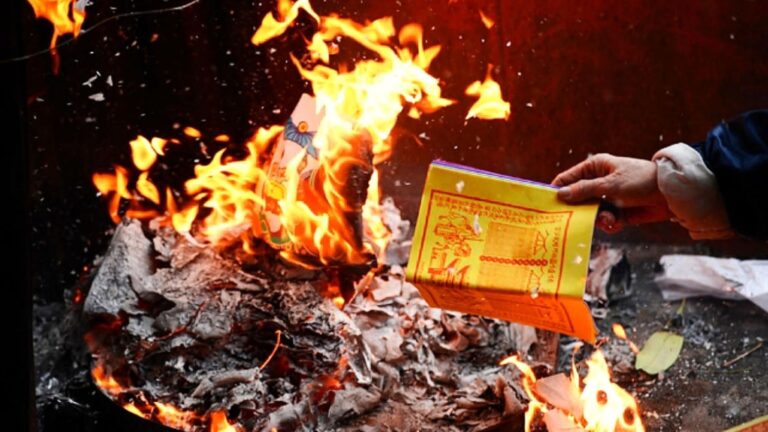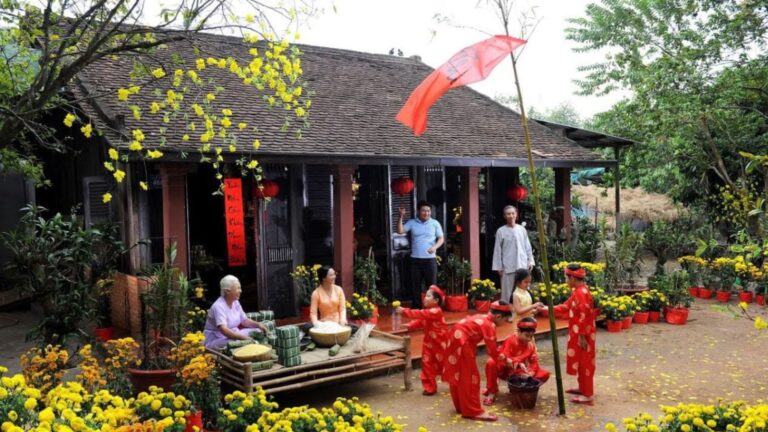A Guide to Ho Chi Minh City’s War Remnants Museum
The War Remnants Museum in Ho Chi Minh City is one of Vietnam’s most visited museums. Both tourists and locals flock to it to learn about the Vietnam War. Located in the city center, the museum serves as a stark reminder of the war’s impact. Besides, it offers a detailed and often heartbreaking look at the war’s realities. So, tourists can easily understand Vietnam’s past, which is made easier through the museum’s exhibits. Let’s explore the history of the Vietnam War with Sun Getaways Travel right now!
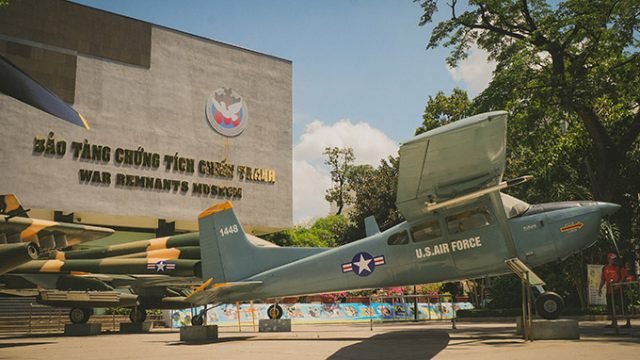
1. Introduction to War Remnants Museum
History of the War Remnants Museum
Originally known as the “Exhibition House for US and Puppet Crimes,” the War Remnants Museum was established in 1975. This was just months after the end of the Vietnam War. Its initial purpose was to document and showcase the atrocities committed during the war. The museum primarily focused on the actions of American forces and their allies.
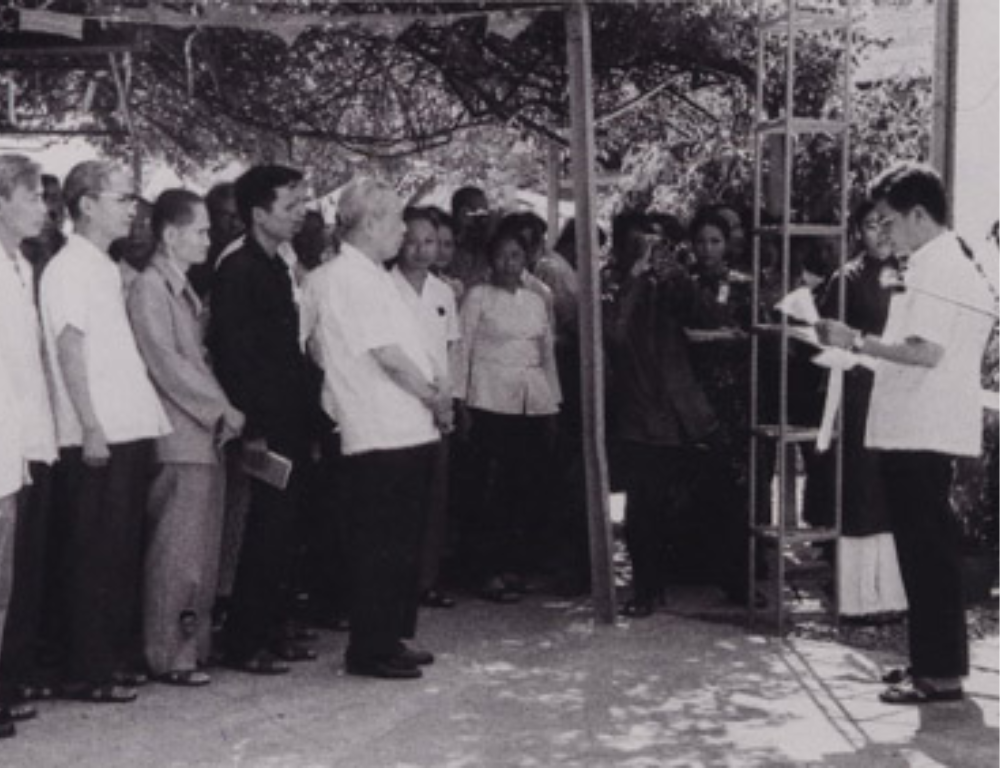

Over the years, the museum’s focus has broadened. In 1990, its name was changed to reflect a more balanced perspective. Today, the museum is dedicated to educating the public. It aims to inform people about the war’s effects on Vietnam. The museum also fosters a dialogue about the long-term consequences of conflict.
Location and Accessibility
The War Remnants Museum is conveniently located at 28 Vo Van Tan, District 3, Ho Chi Minh City. It is easily accessible by taxi, motorbike, or on foot if you are staying in the central part of the city. The museum is near other popular attractions, such as the Independence Palace and Notre-Dame Cathedral Basilica of Saigon, making it easy to include in a day of sightseeing.
🌟 You might want to check out: Ben Thanh Market: Shopping & Street Food in Ho Chi Minh
Visitor Information
The War Remnants Museum is open daily from 7:30 AM to 5:30 PM (Ticket counter closes at 5:00 PM), with a brief closure for lunch from 12:00 PM to 1:30 PM.


Admission is affordable, with tickets priced at around 40,000 VND for adults and 20,000 VND for children. It’s best to visit in the morning or late afternoon to avoid the midday heat and the busiest crowds. While most exhibits are labeled in both Vietnamese and English, guided tours are also available for those who want a more in-depth experience.
🌟 You might want to check out: Decoding Saigon: Unveiling the Charms of Ho Chi Minh City
2. Exhibits Overview


The museum’s exhibits are divided into several themed sections, each focusing on different aspects of the Vietnam War and its aftermath. The museum is spread across multiple floors, with each level offering a unique perspective on the conflict.
Visitors will find a mix of photographs, artifacts, and military equipment, all of which tell a powerful story about the war and its lasting effects on Vietnam.
Ground Floor Exhibits
On the ground floor, you’ll encounter an extensive collection of military equipment, including tanks, helicopters, and aircraft that were used during the war. One of the most striking exhibits is the “Tiger Cages”, which were used to hold and torture political prisoners. These cages give visitors a harrowing glimpse into the brutal conditions faced by many during the conflict.
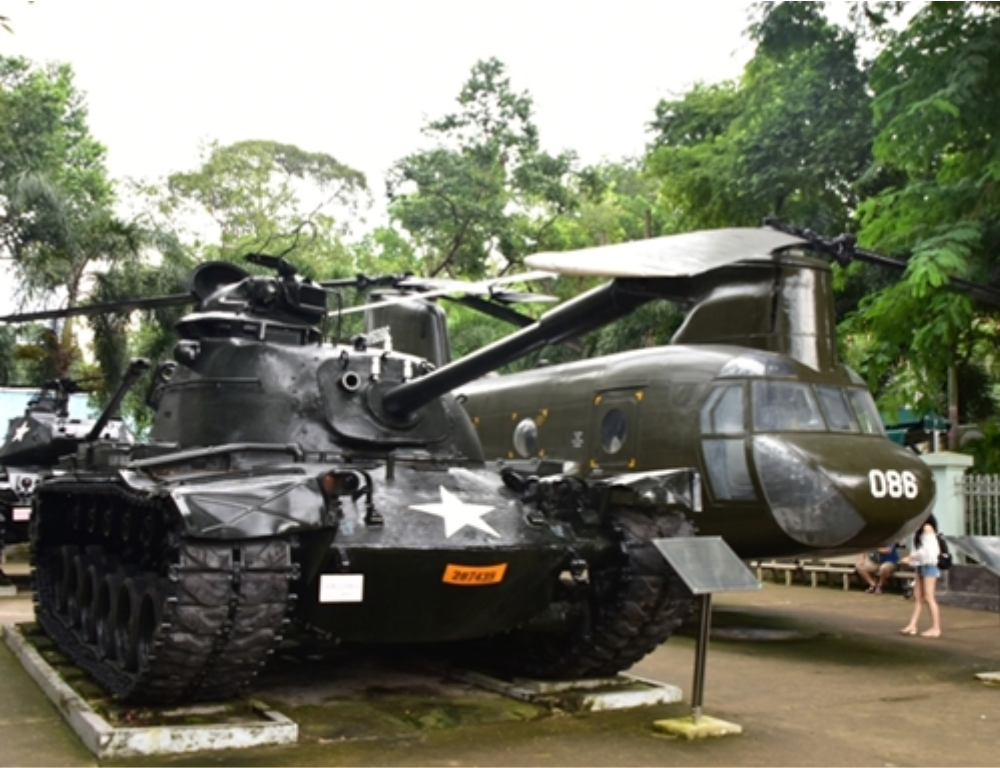

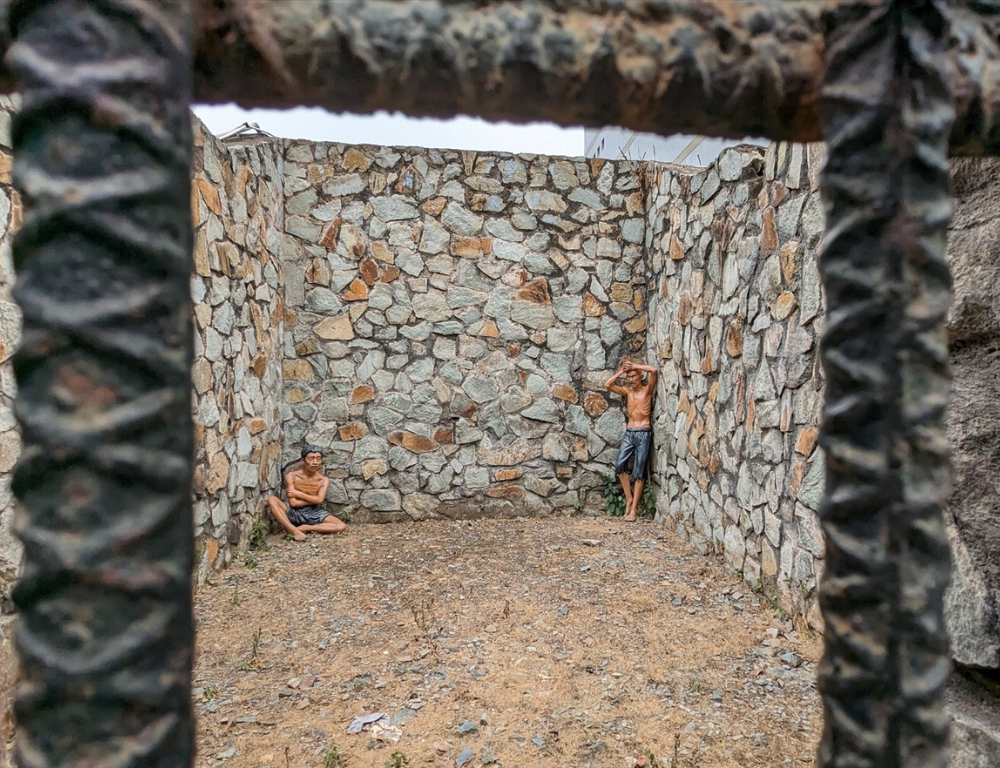

First Floor Exhibits
The first floor of the museum houses a vast array of photographs. Many of these images are difficult to look at due to their graphic nature. They depict the horrors of war. The photographs show the devastation of villages and the suffering of civilians caught in the crossfire. Additionally, the museum displays personal accounts from soldiers and civilians. Artifacts such as letters and clothing help to humanize the conflict and its impact on ordinary people.
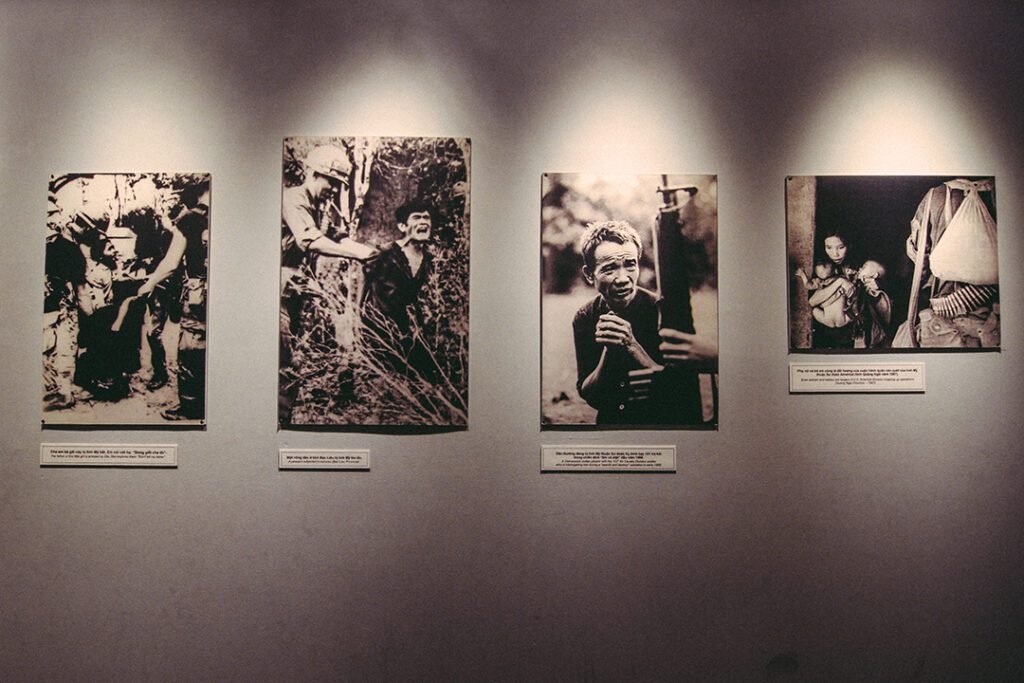

Second Floor Exhibits
The second floor delves into the aftermath of the war, particularly its effects on Vietnamese civilians. One of the most poignant sections focuses on the impact of Agent Orange, a chemical defoliant used by the US military that caused widespread suffering and birth defects. This floor also features stories of survivors and their ongoing struggles, serving as a reminder of the war’s long-lasting consequences.
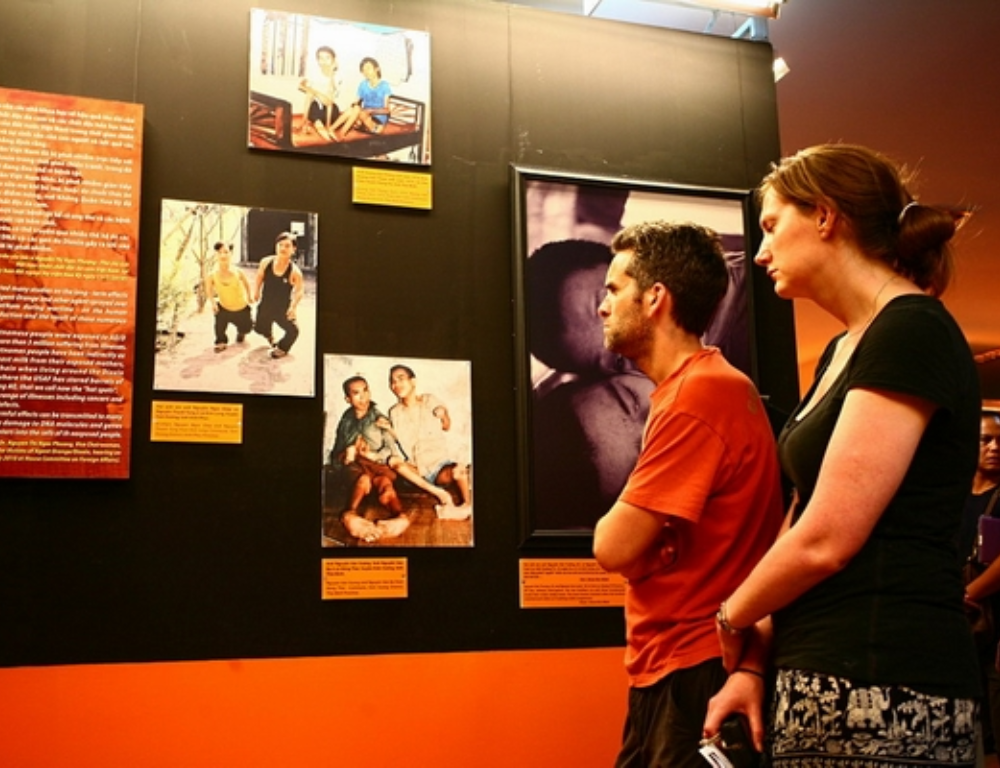

Special Exhibits
The museum regularly hosts special exhibits that offer new perspectives on the Vietnam War or explore related themes. These temporary exhibitions often include contributions from international artists, photographers, and historians, providing a more global view of the conflict and its implications.




If you have the chance, these special exhibits are well worth the visit, as they often bring fresh insights and highlight lesser-known aspects of the war.
Museum Layout and Visitor Experience
Navigating the War Remnants Museum can be an emotional experience, given the heavy subject matter. It’s recommended to take your time as you move through each section, allowing yourself to fully absorb the information and reflect on what you’re seeing. The museum is laid out in a logical manner, starting with the war’s origins and leading through to its aftermath, which helps visitors gain a comprehensive understanding of the conflict.
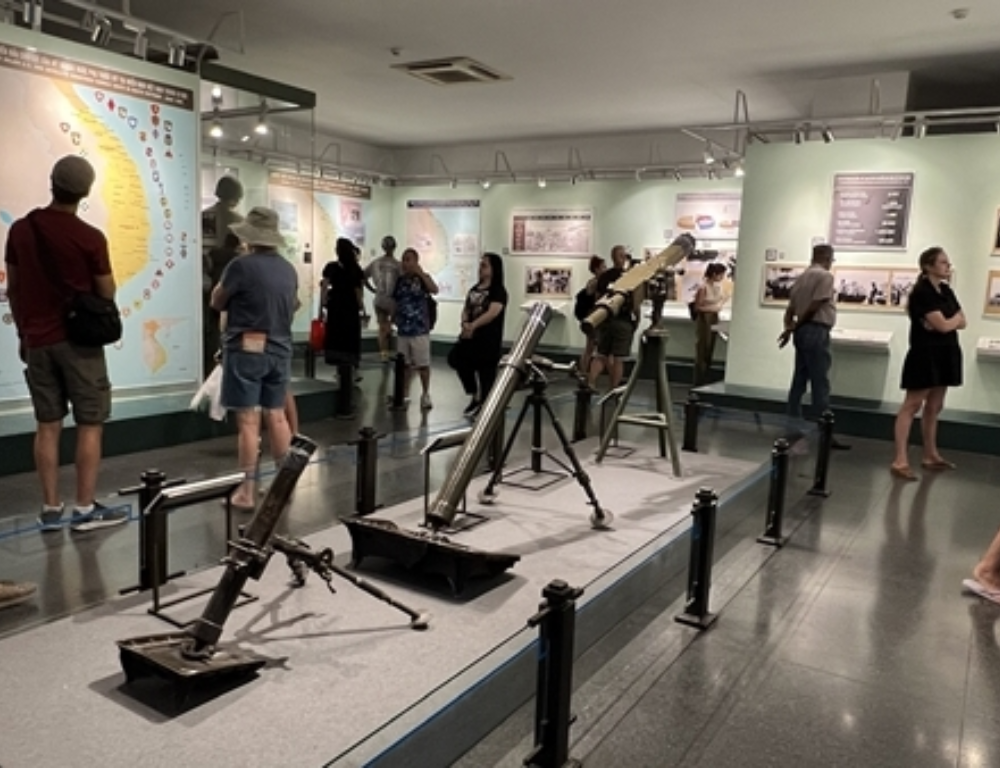

📸 Contact us via WhatsApp or follow Sun Getaways Travel Fanpage to get the best information for your Ho Chi Minh City trip. Or follow these posts to get the details if you want to:
For your trip to be perfect, it’s crucial to understand the characteristics of each area, and our detailed guide to Vietnam’s regions will help you do just that.
3. More Information on War Remnants Museum
Impact of the Museum
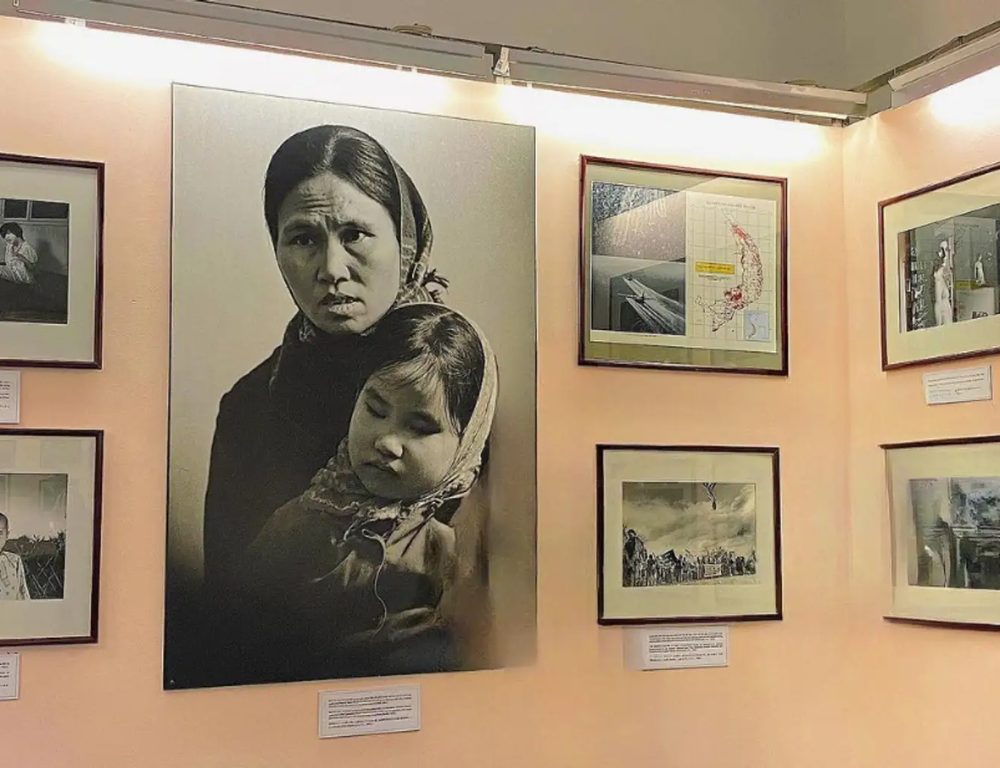

The War Remnants Museum plays a crucial role in educating both locals and international visitors about the Vietnam War history. For many, the museum is a transformative experience, offering a stark reminder of the human cost of war. The exhibits are designed to provoke thought and discussion, encouraging visitors to consider the broader implications of conflict and the importance of peace.
Some Controversies and Criticisms
Like any museum that deals with sensitive historical events, the War Remnants Museum has faced its share of controversies. Some critics argue that the museum’s portrayal of the war is biased, focusing too heavily on the actions of American forces while downplaying the complexities of the conflict.
Others feel that the graphic nature of some exhibits is too distressing, particularly for younger visitors. However, the museum’s defenders argue that its approach is necessary to convey the full reality of the war and its impact on Vietnam.
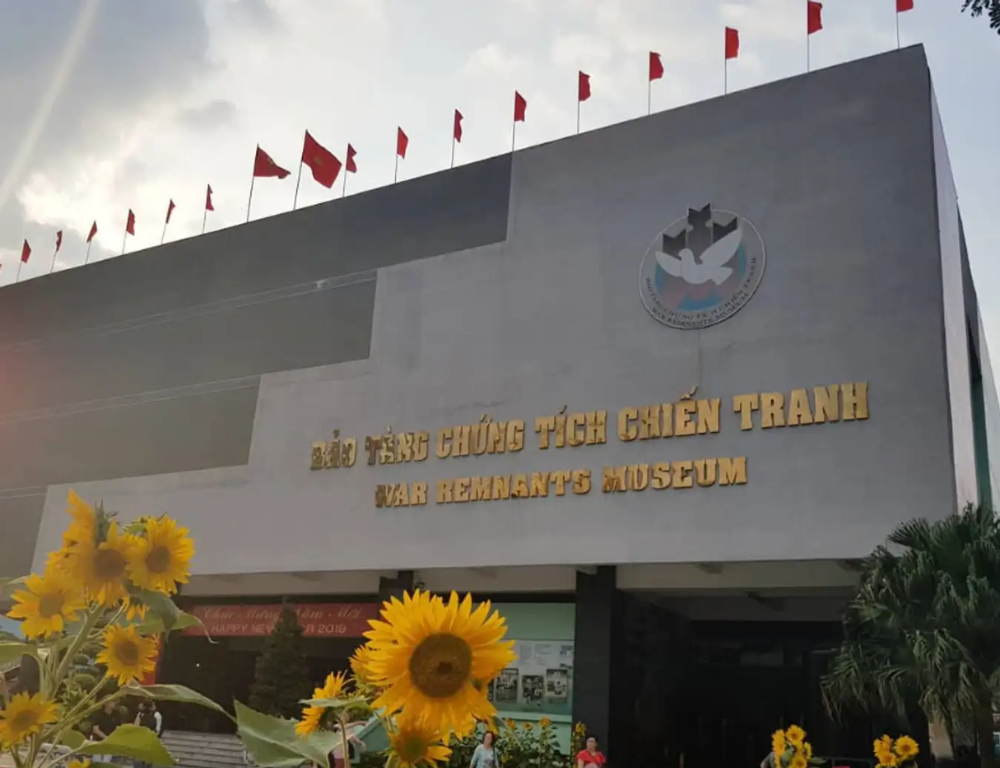

4. Travel Tips
Nearby Attractions






After visiting the War Remnants Museum, there are several other attractions in Ho Chi Minh City that are worth exploring. The Independence Palace, a key site in the history of the Vietnam War, is just a short walk away. The Notre Dame Cathedral Basilica of Saigon and the Saigon Central Post Office are also nearby and offer a glimpse into the city’s French colonial past. For those interested in more contemporary art and history, the Ho Chi Minh City Museum of Fine Arts is another excellent destination.
🌟 You might want to check out: Travel to Ho Chi Minh with Foreign Tourists: A Comprehensive Guide
Tips for International Visitors
If you’re visiting the War Remnants Museum from abroad, there are a few things to keep in mind to ensure a smooth and respectful experience. While English is widely spoken in the museum, it’s still a good idea to brush up on basic Vietnamese phrases as a courtesy.
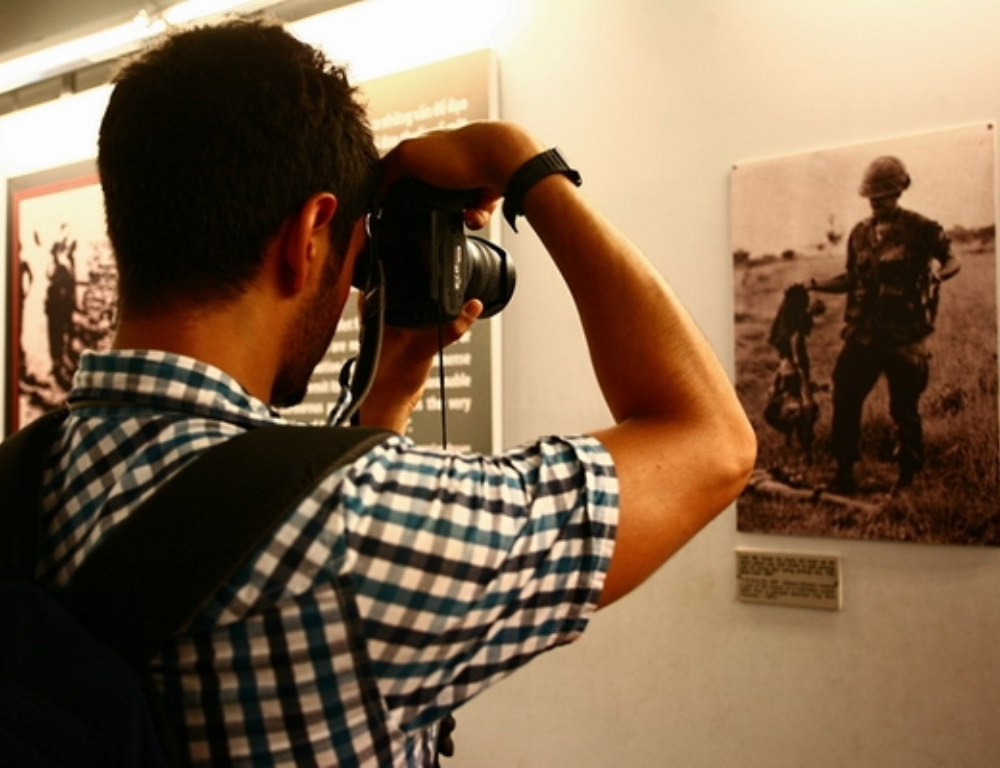

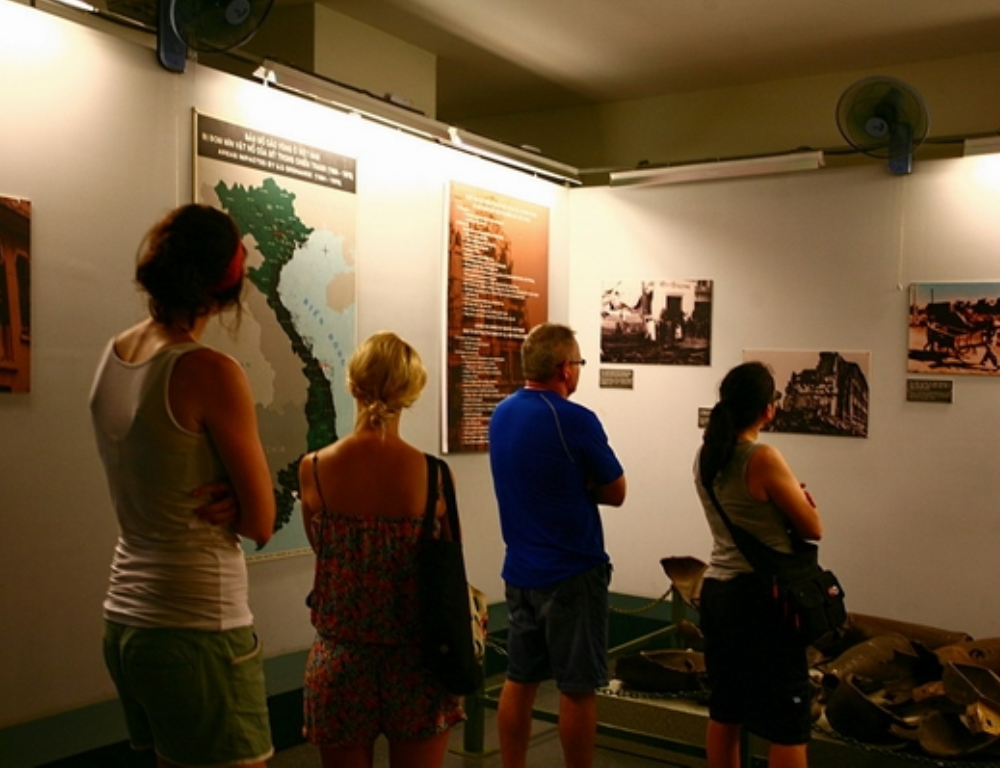

The exhibits can be emotionally challenging, so consider taking breaks if needed. Also, be mindful of cultural differences and approach the exhibits with an open mind and respect for Vietnam’s history.
5. FAQs
1. How long should I plan to spend at the War Remnants Museum?
Most visitors spend between 2 to 3 hours exploring the museum. However, if you’re particularly interested in Vietnam War history, you might want to allocate more time to fully absorb the exhibits.
2. Is the museum suitable for children?
The War Remnants Museum contains graphic images and exhibits that depict the harsh realities of war, which may not be suitable for young children. Parents should use discretion and consider the maturity of their child before visiting.
3. Are there English descriptions available for exhibits?
Yes, most of the exhibits in the War Remnants Museum have English descriptions, making it accessible to international visitors. There are also guided tours available in English for a more detailed understanding of the exhibits.
4. Can I take photos inside the museum?
Photography is generally allowed in most areas of the museum, but be sure to check for signs that might indicate restrictions, especially in special exhibit areas. It’s also courteous to be mindful of other visitors when taking pictures.
5. What other museums in Ho Chi Minh City are related to Vietnam War history?
In addition to the War Remnants Museum, you can visit the Independence Palace, which played a significant role during the Vietnam War. The Ho Chi Minh City Museum also offers exhibits on the city’s history, including the war period.
6. Conclusion
The War Remnants Museum in Ho Chi Minh City is more than just a collection of artifacts; it’s a powerful testament to the resilience of the Vietnamese people and a stark reminder of the horrors of war. Whether you’re a history buff, a traveler seeking to understand Vietnam’s past, or simply someone looking to deepen your knowledge of global events, this museum offers a deeply moving experience that is not to be missed.
Ask a question
Leave a Comment (0)
No questions yet. Be the first to ask a question!


















